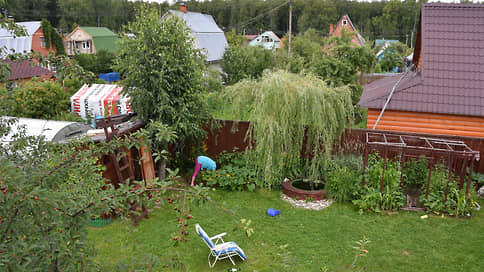They want to give summer residents the right to vote
[ad_1]

Deputies of the Moscow Regional Duma propose allowing homeowners without local registration to participate in the elections of village elders. The Moscow Regional Duma submitted a corresponding bill to the State Duma on Wednesday together with its deputy from the Moscow region Gennady Panin (United Russia). The authors explained the initiative by the fact that the actual number of residents of sparsely populated areas often far exceeds the number of citizens registered there. Previously, the Duma had already adopted an amendment allowing homeowners who were not registered in the village to be appointed village elders.
Amendments are proposed to be made to the federal law “On the general principles of organizing local self-government.” According to its current norms, in settlements with up to 300 residents, a headman can be appointed by the municipal council upon the proposal of a gathering of registered villagers there.
However, in many villages near Moscow, the number of homeowners noticeably exceeds the number of residents registered there, the explanatory note to the project says: “Such citizens, as a rule, are active participants in public life and events held in the locality, help solve issues of local importance and would like to take part in the selection of the headman.” A similar situation, according to the authors of the amendments, is in the Leningrad, Tver and Vologda regions.
The bill proposes to include in the circle of participants in the gathering on the issue of appointment or resignation of a village headman “persons who own residential premises located in a given locality, if this is established by the municipal regulatory legal act of the representative body of local self-government.”
At the same time, it is proposed to reduce the quorum for the eligibility of such a gathering from half to a quarter of the registered number of residents.
“This is already the second serious study regarding rural elders,” Gennady Panin, who holds the post of first deputy chairman of the Committee on Regional Policy and Local Self-Government in the State Duma, recalled earlier on social networks. “If previously only residents registered in this territory could be elders, now (since February 2023.— “Kommersant”) a headman can also be a person without registration in this locality, but who has property here.”
The deputy also emphasized that both initiatives were “maximally vital” and came directly from the heads of village councils: “I myself am a resident of the village and I know for sure that a registration stamp does not guarantee activity, participation, or interest in public life.”
Later, legislators plan to grant unregistered owners the right to participate in meetings “on a variety of everyday issues” – for example, on settlement boundaries, self-taxation and initiative projects, United Russia added.
Deputy Chairman of the State Duma Committee on Regional Policy and Local Self-Government Mikhail Matveev (Communist Party of the Russian Federation) told Kommersant that “offhand, the initiative is correct.” “Local self-government is still a government close to the people, and in fact, summer residents are often full-fledged residents of such settlements. For them, issues of development, improvement, and transport are very important, and therefore there must be some mechanism for taking into account their opinions,” the deputy explained.
Chairman of the Commission of the Public Chamber of the Russian Federation on Territorial Development Andrei Maksimov agrees that the problem raised by the Moscow Regional Duma is relevant for different regions, where people live in two houses, and many work remotely. “This is a completely typical story when ten people are left in a village of local residents, and the rest are visitors,” the expert notes
According to him, the need to correlate a real community with the possibility of managing a territory is long overdue, and various options have already been discussed in this regard – for example, separating the mechanism for elections to local authorities and various forms of territorial self-government. Making changes to legislation is a more difficult path from the point of view of legal technology, but it will allow a more radical solution to the problem, Mr. Maksimov believes. And if the experience turns out to be successful, then it will be possible to move further along the path of expanding this practice, the expert concludes.
[ad_2]
Source link








